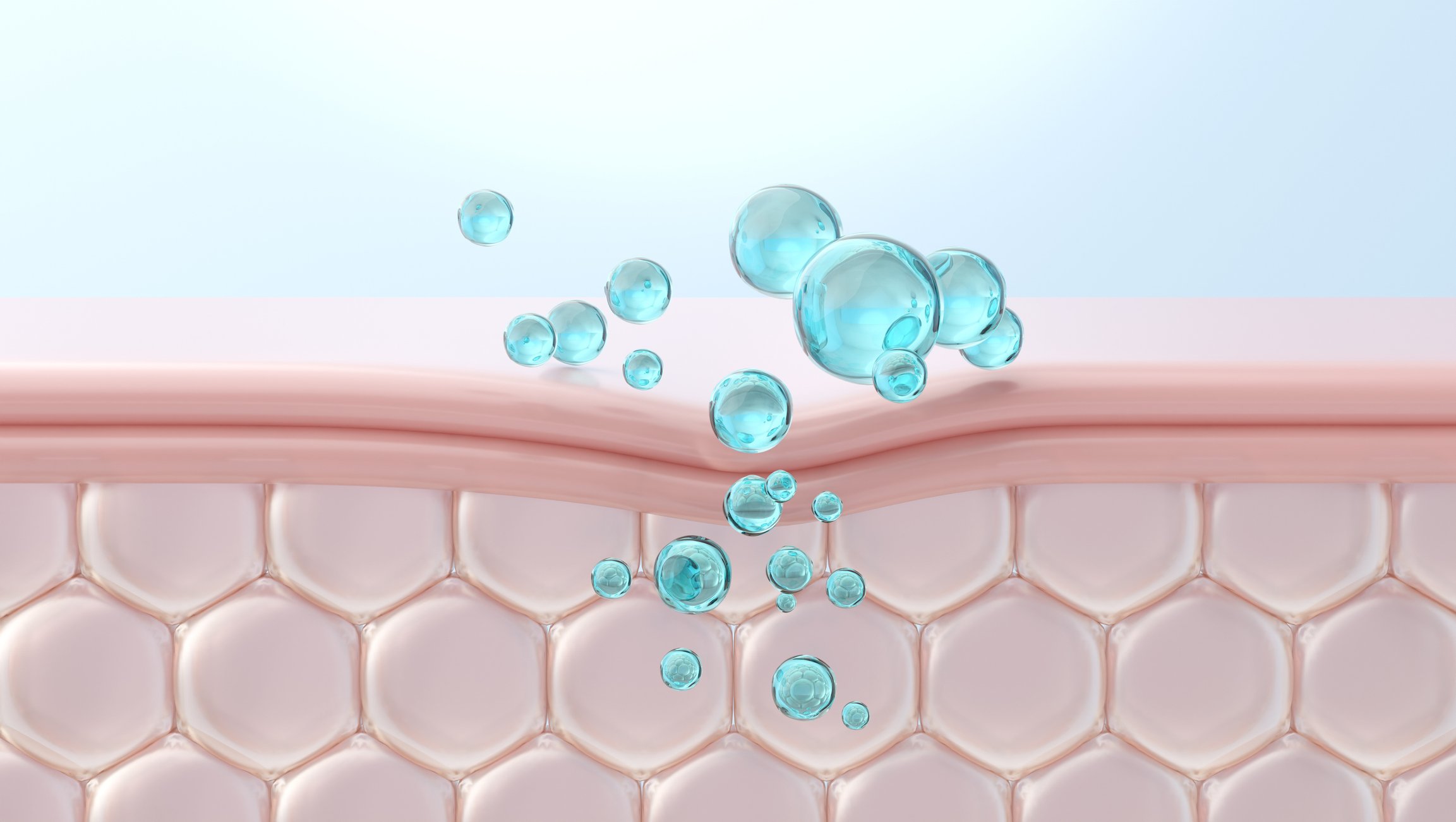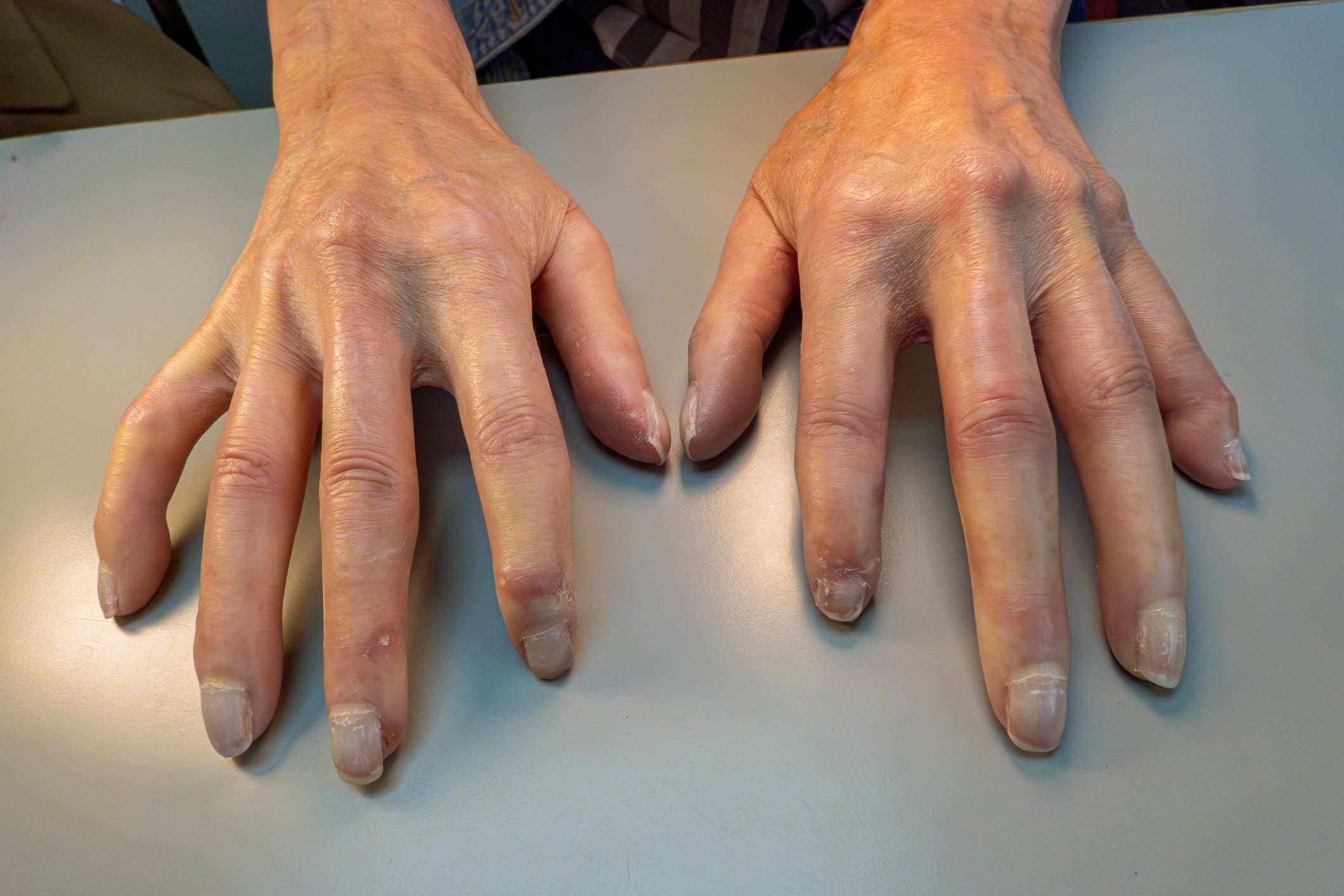Achieving remission is the ultimate goal in the treatment of the inflammatory rheumatic diseases rheumatoid arthritis, axial spondyloarthritis, and psoriatic arthritis [1-3]. In the following interview, Natalie Marcoli, MD, from the Ospedale Regionale di Lugano, explains how realistic this therapeutic goal is with the treatment options available today and what remission means for those affected.
How important do you think it is to achieve remission in inflammatory rheumatic diseases? What does remission mean to you in the three indications rheumatoid arthritis, axial spondyloarthritis and psoriatic arthritis?
“Today, the goal in rheumatology is for all patients to achieve remission. This is an important treatment goal because it has a major impact on patients’ quality of life. Remission is a state with very low disease activity. This means that – based on clinical examinations, determination of laboratory values and the patient’s perceived well-being – patients have virtually no pain and show no signs of inflammation. Patients should have virtually no complaints.
The definition of remission always depends on the indication and differs between rheumatoid arthritis, axial spondyloarthritis and psoriatic arthritis. Scores allow us to assess whether patients are in remission or have achieved low disease activity. In rheumatoid arthritis, for example, the DAS28 score provides guidance for optimizing and switching treatments and supports clinical decision making. For psoriatic arthritis, we apply the DAPSA score, and for axial spondyloarthritis, we typically use the BASDAI, which differentiates active disease from well-controlled disease.”
2.How do your patients describe the state of remission? What feedback do you receive from your patients who have achieved this therapy goal?
“Remission represents a better quality of life for patients. They function better, work more efficiently, can pursue hobbies and participate in social activities. They feel like they are back to their normal lives, have more energy, and most importantly, no pain.
Patients who have achieved remission are usually very satisfied and grateful to have access to their particular therapy. Many patients therefore want everything to remain exactly as it is – and hesitate when it comes to reducing the drug dose or increasing the dosing interval of biologics. That’s totally understandable, because the pain and fatigue used to be so limiting for people with the disease that they don’t want to experience those symptoms anymore.”
3.What differences in quality of life do you see between patients in remission and those who have not achieved remission?
“Patients who have not achieved remission will always have symptoms and will be looking for a way to optimize their therapy. However, this proves difficult when a patient is already being treated with an effective biologic, has tried many other therapies, but still suffers from some degree of pain or fatigue.
This problem is also reflected in the conversations I have with patients. When a patient is in remission, they often don’t want to talk about their disease anymore, preferring to talk about what they do in their free time and what is planned for the future. When patients’ disease activity is not well controlled, they focus more on what can be done to improve their physical condition.”
4.For which patients do you think achieving remission with currently available treatment options is realistic and for which patients are there still challenges?
“Even today, 20% to 30% of patients do not achieve remission, despite the availability of better treatment options and biologics for rheumatoid arthritis, axial spondyloarthritis, and psoriatic arthritis. Unfortunately, there are no markers that can be used to predict which of the available treatment options will allow patients to achieve remission and which will not.
From recent data on treatment with TNF inhibitors, we know that a higher BMI correlates with a lower probability of a positive response to this therapy. Another challenge is secondary chronic pain syndrome, such as fibromyalgia, because distinguishing fibromyalgia from an active rheumatologic condition is difficult. If we can shorten the delays in diagnosis, we can probably improve treatment outcomes for some patients by preventing the development of secondary pain syndromes like fibromyalgia.”
5.What is the importance of pain control besides achieving remission and how are pain and remission related?
“Pain is the focus for most patients because it is the first thing they notice. Usually, patients interpret their situation as being able to function normally without pain and being on the road to remission. This shows what a central role pain plays. We do everything we can to relieve pain as much as possible, because this is crucial for achieving remission. Less severe pain also has a positive impact on the secondary symptoms patients may suffer from, such as depression, fatigue or lack of motivation.”
6.What future developments would you like to see in the treatment of inflammatory rheumatic diseases?
“In the future, I would like to see more therapeutic options and the ability to personalize the treatment of rheumatoid arthritis, axial spondyloarthritis and psoriatic arthritis.
For example, oncologists can often do genetic testing and determine, “This patient with this particular type of tumor is likely to achieve tumor control with this particular drug.” Unfortunately, this personalization of treatment is not yet available in rheumatology. In spondyloarthritis, we are so accustomed to prescribing TNF inhibitors that they are virtually first-line therapy, even though we know that given the pathomechanism, IL-17 may be a more useful choice. A personalized treatment that can predict which biologic will work best in which patient – that would be a dream for us rheumatologists.
Second, of course, the more therapeutic options available, the greater the chances of finding the right medication for the patient. In this way, the number of patients achieving remission can also be increased. However, I must also emphasize that the field of rheumatology, with all the new treatment options, is in a phase of awakening and we can already offer patients a lot. And many patients are very grateful for that.
References
The references can be requested by professionals at medinfo.ch@abbvie.com.
Interview: Dr. sc. nat. Katja Becker
This article was written with the financial support of AbbVie AG, Alte Steinhauserstrasse 14, 6330 Cham.
CH-RNQR-220101_11/2022
Article online since 19.12.2022













